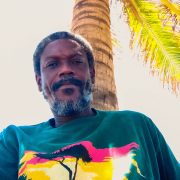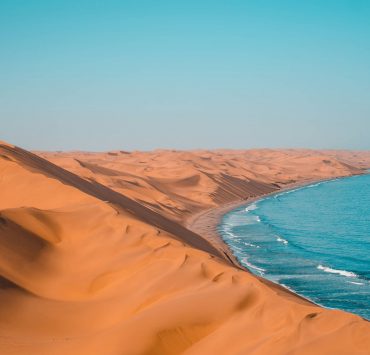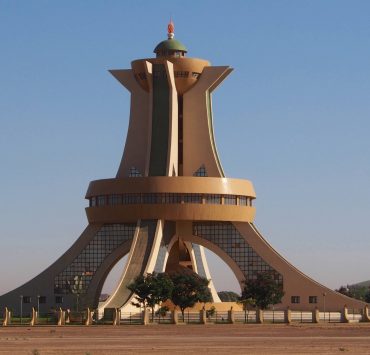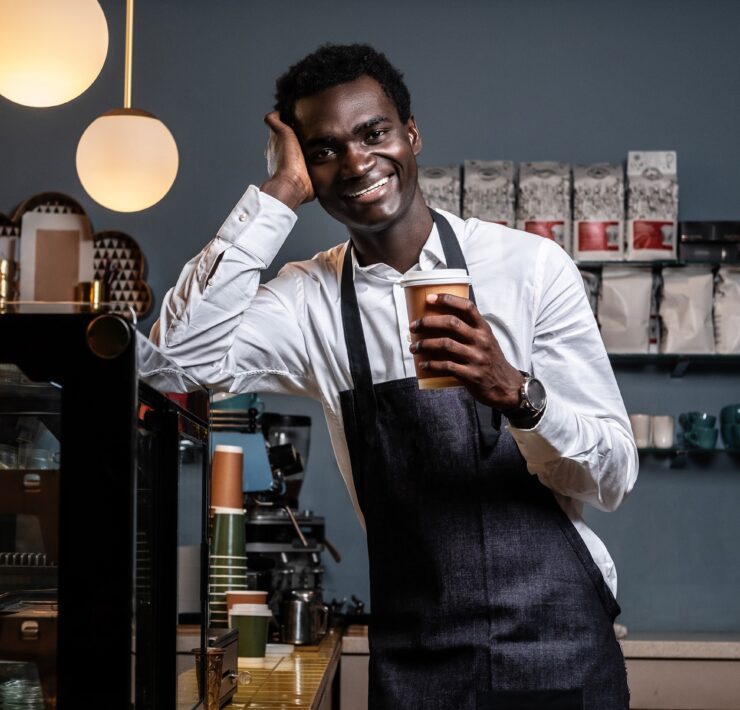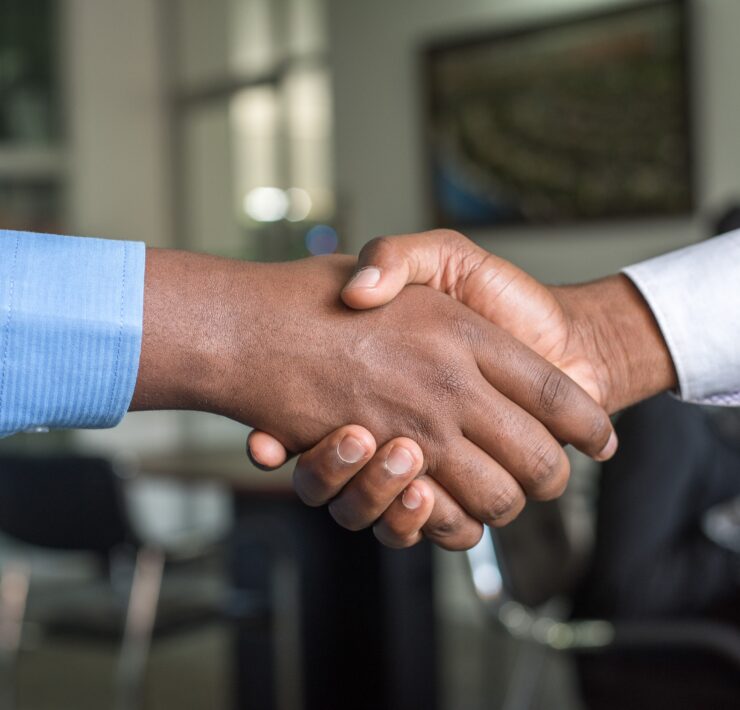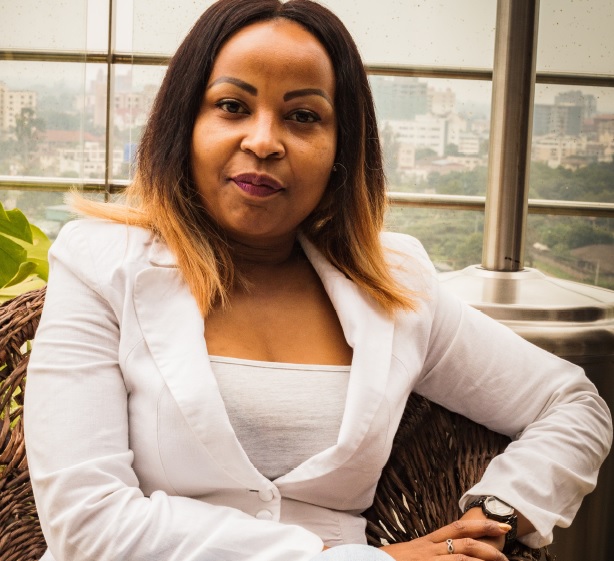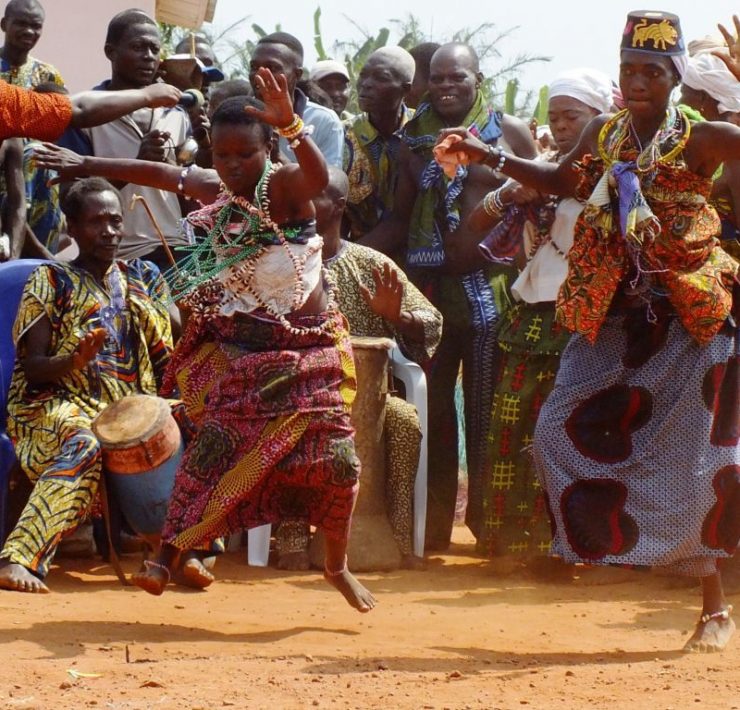VALUE ADDITION IN GHANA’S COCOA
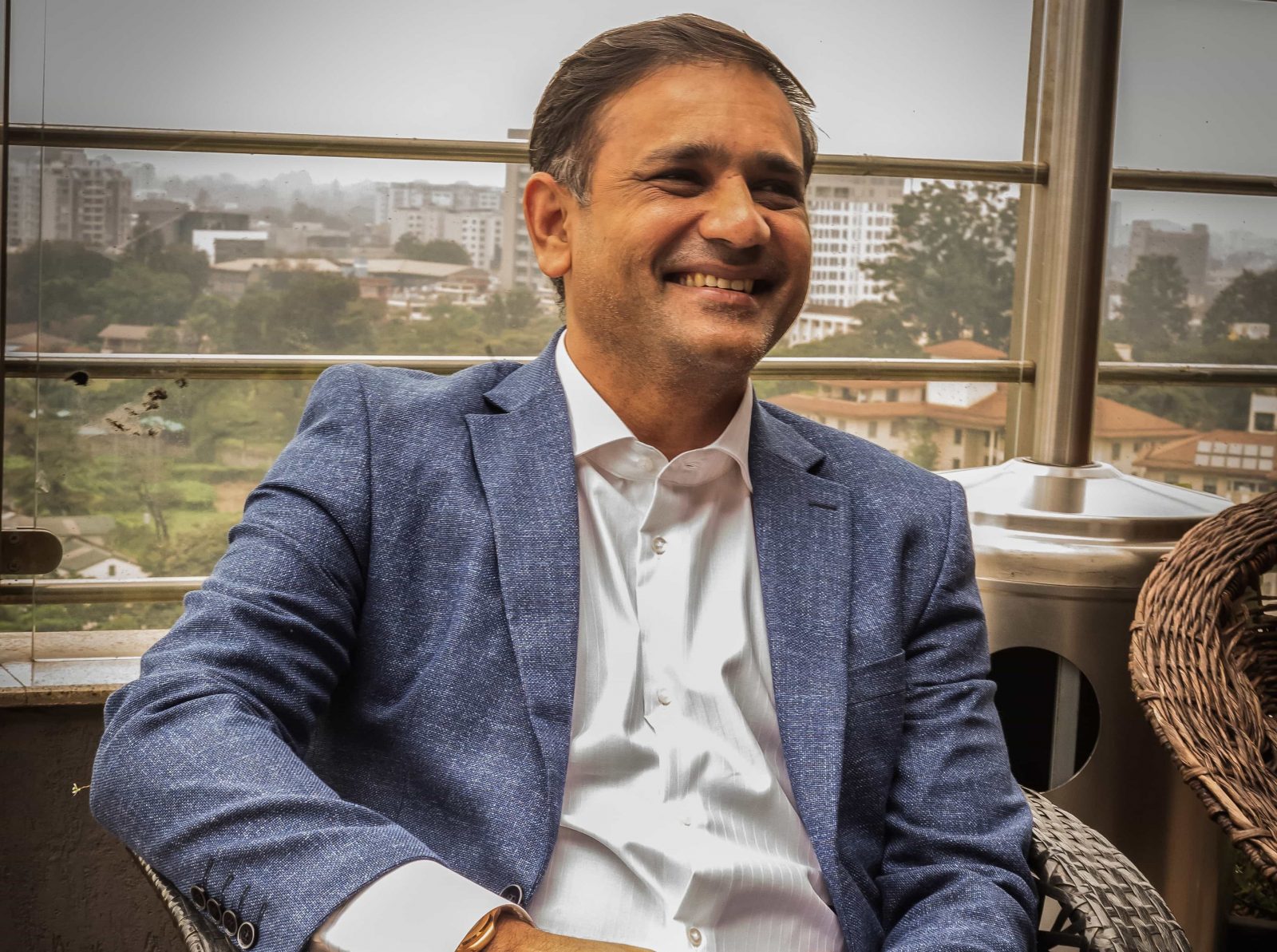
Passionate about getting God's message concerning Afrika and the end…
INTERVIEW WITH JIGNESH VIRADIA
In this interview we speak with Jignesh Viradia, Indian pan-Afrikanist, investor, businessman
and founder of Agrolabs in Ghana, which is part of the charge towards value addition in the cocoa industry.
What is an Indian pan-Afrikanist?
Indian by birth and pan-Afrikan by choice or by will. For me, Afrika is my home now and I wish to do everything and anything that can bring my home a good perspective and a good future for my Afrikan brothers and sisters and for mother nature. Afrika is a golden continent… Afrika is life, Afrika is something which is unexplored. To continue my contribution towards Afrika, I have been doing quite a few things in terms of businesses, capacity building, entrepreneurship, knowledge partnerships and so on.
Agriculture is something I am focusing on and is something in which I feel we have abundance of land available for, where opportunities are immense. What we need is the right perspective and the support of government and government policies to make things possible. We, in Ghana, are trying to bring out-grower schemes for farmers, where we bring those who don’t have farmland to our own farms where they can farm and we could be the off taker. These are some grassroot level things that we are starting from.
Together with a team, we’re coming up with a science and technology museum and we are trying to bring planetariums to every part of Afrika. I believe that things that we learnt in India or some other countries, don’t exist [in Afrika] and I feel that everybody should have the liberty to enjoy education. Displaying science, displaying artifacts, studying our galaxy, I think would be a fascinating thing to have as a journey in your education. It will attract tourism, which is a growing factor in every growing economy.
If you support tourism, the economic growth by default will rise tenfold. If I give you the example of Dubai; Dubai is nothing more than a Legoland which is constructed by putting pieces together from a tourism perspective and people are coming there and spending money on tickets, hotels, leisure, luxury items, sightseeing and so on. So, if the same perspective could be brought to Afrika, Afrika has all the ingredients to come up with tourism destinations and breathtaking destinations, where it could make a difference to the outside world to see it from a different perspective. Considering all these factors I believe that a small contribution that I could make in my lifetime, which I want to do for Afrika, is to bring Afrika to the highest level that I can.
Absolutely, because it’s a completely non-exploitative relationship, which Afrika has grown exhausted of. Recently President Addo spoke about his desire to start to wean Ghana off exporting raw materials to other countries and he was speaking particularly about cocoa. I noticed you’re working in the area of cocoa and chocolate and you’ve gone into value addition in cocoa. Tell us a little about that journey.
Yes, His Excellency President Nana Addo has taken a bold initiative by pushing local production in cocoa, where he is insisting that we bring value addition to cocoa products. Cocoa, right now, is not patronized in terms of local production. It is getting exported and then international or foreign chocolates come back to Ghana and we pay maybe 10, 20 or 50 times [more] to buy and eat it. We are trying to come up with local production in terms of chocolates and see what value addition we can do. Going forward, we may think of even coming up with a cocoa drink. The president has also announced one cocoa drink for one child policy for schools, for the school feeding program, to support local cocoa. And cocoa is a magical powder which can give high fiber content to your body, which gives health benefits to growing children. We are in support of the president’s initiative in terms of pushing local production, and seeing how we can contribute to that effort and bring Ghanaian chocolates to the world.
It’s about time. There’s a gentleman in Togo who is also trying to do local chocolate using cocoa there.
Yes, recently I just got an inquiry from a large company in Cameroon who are putting up a big factory there. So, yes, the drive is spreading.
Afrikan chocolate at last!

And just to give you insight. Where 90% of the cocoa is used from different parts of the world, 10% is used from Ghana to add texture and flavor. So, a small amount of cocoa from Afrika brings 100% value to a product. Because everybody is habituated with eating a chocolate which has less cocoa and less nutrition or less golden cocoa and more of the non-nutritious or undervalued product, you don’t get the taste. But once you eat the Ghanaian 100% original cocoa or chocolate, it’s completely different. It sweetens your mouth; it gives better flavor and texture.
So, it’s premium cocoa!
It’s premium. Ghana is known for two things: the gold, which is real gold, and second is the brown gold, which is called cocoa, which has both amazing value in terms of nutrition and gold is the highest valued commodity product. Cocoa is a tremendous opportunity; more and more entrepreneurs should come and start and see how they can produce locally and also support the Afrikan entrepreneurs who want to get into this particular trade. Cocoa is used in plenty of things, it’s not just chocolate. Right from beauty products to health products, name it. It is a universal product.
You’re also working on a very unique anti-venom for Afrika.
Dr Akshay Rath is Indian by birth but he has a passion towards doing something for Afrika. He spent around 8 years doing research about pan-Afrikan snakes and he came out with a unique anti-venom serum, with 100% efficacy in terms of treatment. It’s the only Afrikan anti-venom meant for Afrika specifically. It works for every type of snake that exists in Afrika. This is the only one, we don’t have any substitute close to it. He has spent his life behind this just to see what value he can bring to it. I have partnered with him to take his vision to pan-Afrika. He is a medical professional from John’s Hopkins and he worked for the UN, he was a special aide to Mr. Kofi Annan, the UN Secretary General, and now he is living in Ghana and trying to see how we can push this into the Afrikan market. It has all the accreditation, right from FDA approval to approval from about five or six countries. Now we are trying to penetrate more by doing more advocacy to see how more people can know about it and value a product which is made for Afrika and by Afrika.
I want to speak to you from the perspective of your expertise as a business person who has been doing business in Afrika for how long?
That’s 12-15 years.
15 years? That’s a lot of experience and that’s a lot of experience with many different countries, importing and exporting. We have a lot of friends and people who watch our channel or read our magazine who are interested in investing in Afrika, but they have questions. Is it worth making the effort? What does it take? What do they have to keep in mind? Is it too expensive? Is it even feasible to try and consider the possibility of a pan-Afrikan market?
First of all, in terms of opportunities there are 1 million. Second, should they come? 1 million per cent they should come. Third, is it safe and secure for their investment? 1 million per cent it is safe and secure. There’s no worry in terms of losing money or losing opportunity. The smallest example that I could give or take is a toothpick. A toothpick is a very common thing, which anybody and everybody uses, which Afrika still imports. A simple matchstick, which again the whole of Afrika uses, yet nobody produces it, everybody imports and again it’s a huge market. The smallest matchstick, for example in the West Afrikan market, would be 300 to 400 million dollars, toothpicks we can say 100 to 200 million dollars. These are massive opportunities, and right now, unfortunately, you know Afrika imports about 80-89% of products. This is on average; each country has a different perspective. You could put your mind to anything. That makes the circle complete in terms of sustainability, feasibility and viability and you could venture into it. Even paper which is being imported. We don’t have paper; we have wood, which goes out and the paper comes in.
Value addition is something which is required in each and every corner. Everything goes out of Afrika and then is sold to Afrika; that fashion has to be changed and the change has to come from motivation with channels and people who educate, who try to see the wealth within the wealth. The whole idea is to create a substance out of a thousand possibilities. We are tremendously rich, richly blessed, so opportunities are massive. People should unite, and forces should gather to make things happen.
I agree. But there is another factor in this whole perspective of Afrikan trade and that’s the Chinese element, because it’s no secret that China has found ways to bring in their goods at lower cost. To the point where we find even Chinese fish is being sold in fish marketing regions and exporting regions in Afrika, which doesn’t make any sense. First of all, how did they even get so much influence and how do we find a way to counter-balance that, because I don’t think that anything should be overbalanced one way or another.
You have touched a stressing point. There is no individual who is good or bad, it is the trend, the community and the backing or it’s the government policies, which make some businesses flourish or ruin. When it comes to China, China is backed by the Chinese government. The entrepreneurs or the business houses are backed by government policies. They have been encouraged towards export sales, for which they are getting huge rebates, so they want to export anything and everything. They are not even considering the price factor, the ROI… they go by the volumes. They don’t go by each number of sales, they go by how many containers, or ships they sell in a year and some 2-3% of that volume is huge money for them. So, they come with a different agenda.
In Afrika, we also are on the verge of emerging as transforming and industrializing, it will take time to evolve. They already have everything in place so they just want to penetrate with a product and that’s a huge gap in terms of backward and forward integration. The smallest things are being imported. Why? Because we are giving space, the government policies are not thinking how to encourage [local business]. For example, we have plenty of bamboo in nature to convert into value added products from toothbrushes, to toothpicks, to buds, to paper, to mats, to blinds… there are a thousand things that could be done, but then there is no support. There is no support, there are no policies.
The same way the Chinese government encourages Chinese entrepreneurs by giving them benefits, perks, subsidies, is the same way if in Afrika the manufacturers have been supported by these types of perks, everybody would jump into it. It is a collaborative participation of all the sectors, no single person is to be blamed and no one person is to be blamed, everybody has to come together to make things possible.
Do you think that there is the will for the continent to come to work together, each nation bringing together its strengths?
Yes. West Afrika, they have ECOWAS, in South Afrika you have SADC; like this associations are formed, unions are formed but all are in piecemeal… everybody has formed their own buses to ride on, but then all of them have to come together at the end of the day. The first initiative ECOWAS took is the Eco, the one currency. This is a good initiative. All this has to come [together]: visa free travel, all the trade has to be smoothened in terms of border crossing and bilateral trade, settlement of payments between banks to allow the hedging of currency to be within Afrika and not hedged to the US dollar. These are small transformations that could bring a revolutionary change. One Afrika has to come in front.
Jignesh, we have to talk about something very serious. The young men and women of Afrika, many of whom are fleeing, risking life and limb to cross the Mediterranean to look for greener pastures. Many of them look at Afrika and they don’t see a continent of hope, they don’t see opportunities. They take money that would actually be enough to start a business but they go and use it to pay for access to ships that will cross the Mediterranean to go and try and build there and end up living horrible lives trying to survive the climate there. What would you say to them?
Youths are the key engine of the growth of all the countries and economies. Where we have 60-70% of youth in the world who need to be motivated the right way, along the right perspective so they don’t run for greener pastures. The areas which influence them in the wrong way: social media, internet, the new apps that are coming out, the connectivity that has come very easily. The influence to these minds is happening at 1000% rapid speed, where their wishes ae going beyond their understanding; they are not even able to understand whether their wishes are realistic. For example, a guy or a small boy who is studying in a school in a rural village, he is exposed to social media apps and certain gadgets, which he starts creating in his mind pictures of ‘How can I have those?’ And having those is not the end, because the apps need data, you need light, you need a lot of things. So, then he wants to go an extra mile to achieve those. Now, to achieve those, they are looking for shortcuts to make money out of, and to make money they are doing all sorts of wrong things, because easy money is not easy. Easy money is complicated because you will indulge into wrong practices.
The second [issue] affecting the drive is the labor laws, because in Afrika our labor laws are not tightened properly to where a laborer who goes to work should get this payment. And, those industries and businesses are not able to pay, because they are heavily taxed. Sales are not there, because of the inclusion of foreign products. The policies to support these kinds of entrepreneurs will result in good payment and wages to the youth, to the young boys and girls who want to see a better future, so that they don’t get carried away by the western world.
So, your message is both to the young people and to the policy makers then.
Yes, everybody has to work hand in hand. Every economy flourishes or ruins because of government policies. A small change, a wrong change, an unprecedented change results in disaster for any growing business.
How do we inspire governments to remember us?
That is beyond my subject to intervene and give a statement. But it’s not that nobody is thinking. There are a few leaders thinking for the country and trying to push the country to a better stage, where the livelihood becomes easy, the people get good jobs, and there is a good mindset amidst the entire youth. It starts from education – efficient and collaborative education. All in a nutshell, things are progressing but still it needs more.
Thank you for your time we appreciate what you’re doing incubating businesses and ideas and giving them acceleration and amplification in Afrika for them to have room to grow.
If you would like to consult Jignesh Viradia, please get in touch with us and we will do what we can to put you in contact with him.
What's Your Reaction?
Passionate about getting God's message concerning Afrika and the end times to the world, in order to heal, restore and rebirth Afrika to her true purpose and destiny in God.








